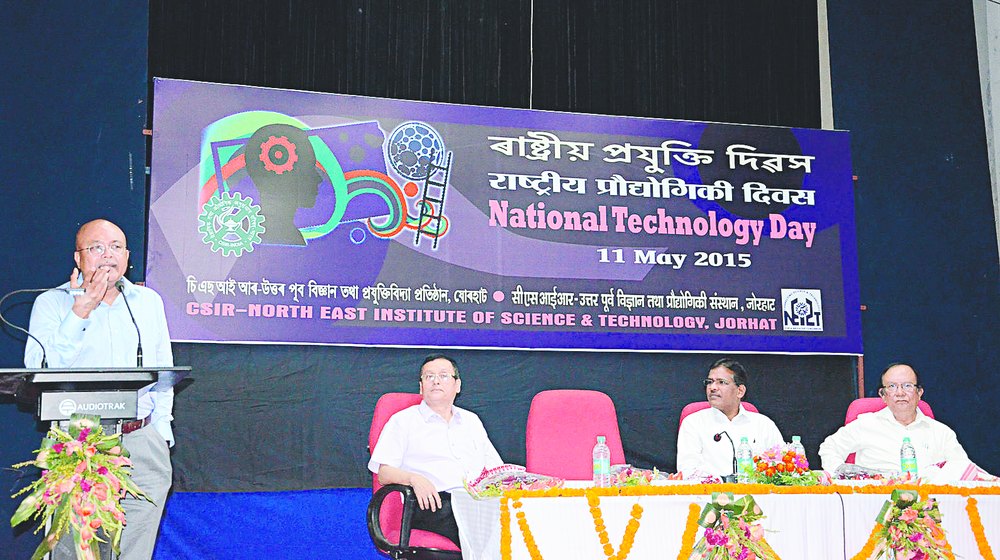
Jorhat, May 11: The detailed feasibility report of the bioethanol plant, planned to be set up by Numaligarh Refinery Limited in Golaghat district of Assam, will be presented to the NRL board tomorrow, paving the way for commissioning of the plant.
This was announced by NRL managing director P. Padmanabhan who was the chief guest at the National Technology Day lecture organised by the CSIR North East Institute of Science and Technology here today.
NRL had signed a partnership agreement with Chempolis Limited, a Finland-based bio-refining technology corporation, in Finland on October 15 last year to set up a bio-refinery in the Northeast to produce ethanol from bamboo sourced from the region. Ethanol will be produced from cellulose, a component of bamboo, while lignin, another extract, will be used to produce energy for the plant to run.
The agreement was signed by Padmanabhan in the presence of President Pranab Mukherjee and Finland president Sauli Ninisto.
The NRL has also signed a memorandum of understanding with the Nagaland Bamboo Commission for supply of 2 lakh tonnes of bamboo per annum, Padmanabhan said. "We are proposing a three to four lakh tonne bamboo plant from which 25-30 per cent of ethanol can be derived. We have already signed an MoU with Nagaland Bamboo Commission which has mature plants ready to harvest and are also looking to Arunachal Pradesh and Mizoram apart from Assam," he said.
"We could soon become the largest producers of ethanol in the country. But more important to us is that hundreds of farmers here would earn a sustainable livelihood by supplying bamboo to our plant," he added.
After the NRL board of directors discusses the detailed feasibility report of the project tomorrow, the plant will be commissioned, after which it will take about two-and-a-half years for bioethanol to be produced. About 5 to 10 per cent of ethanol, also known as ethyl alcohol, is blended with petroleum to increase engine efficiency and performance. It is also used to oxygenate fuel, resulting in cleaner emissions and reducing air pollution.
Asked about shortage of bamboo in the region, for which Hindustan Paper Mill at Jagiroad had to use a percentage of other products for manufacturing paper, Padmanabhan said he would not like to comment on it. He said NRL had got its supply lines fixed and was on the lookout for more as the region was a natural reservoir ofdifferent species of bamboo. At present, ethanol is produced in India mostly from sugarcane.
On the percentage of indigenous technology being used in refineries, Padmanabhan said only about 5 per cent was indigenous while 95 per cent was from outside. On use of indigenous technology, he said NRL had recently set up a micro-crystalline wax unit with the help of CSIR IIP which had the potential of producing 40,000-55,000 tonnes of good quality wax.
He said this would soon "knock out many things from China".
Guest of honour Narendra Nath Dutta spoke about the strides in medicine technology which had benefited the human race immensely.










